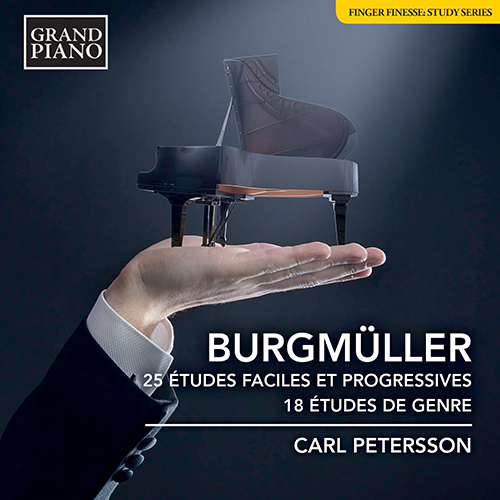
About this Release
“I've known about Friedrich Burgmüller forever, but only a few pieces of music, such as the Arabesque. I remember thinking that this is beautiful, really charming and inviting, but I had no idea that these were etudes because they seemed like real music pieces. Each piece is really short, but each is like a small universe in itself. Aside from some of the more technical etudes, I would recommend these to listeners of all ages because they're so charming. They are a joy to listen to and a joy to perform.” — Carl Petersson
BURGMÜLLER, JOHANN FRIEDRICH FRANZ (1806–1874)
25 Easy and Progressive Studies • 18 Characteristic Studies
- Carl Petersson, piano
In 1832 German-born Friedrich Burgmüller settled in Paris where he became internationally admired for his salon pieces and studies. At a time when demand for new teaching material had reached unprecedented heights, he supplied a sequence of works that appealed to the amateur market by virtue of their musical interest and appropriate technical demands.
Written for the burgeoning market for piano teaching material, the set of 25 Easy and Progressive Studies, Op. 100 was soon followed by the 18 Characteristic Studies, Op. 109, a continuation of the earlier set, each piece bearing a charming title. They continue to provide a basis for teaching to this day.
This recording was made on a modern instrument: Fazioli, F278
Tracklist
|
25 Études faciles et progressives (25 Easy and Progressive Studies), Op. 100 (1838) (00:30:00 )
|
|
1
No. 1. La candeur (Candour) (00:01:14)
|
|
2
No. 2. L'arabesque (Arabesque) (00:00:51)
|
|
3
No. 3. La pastorale (Pastoral) (00:01:09)
|
|
4
No. 4. La petite réunion (The Small Gathering) (00:01:28)
|
|
5
No. 5. Innocence (00:00:50)
|
|
6
No. 6. Progrès (Progress) (00:01:04)
|
|
7
No. 7. Le courant limpide (The Clear Little Stream) (00:00:53)
|
|
8
No. 8. La Gracieuse (With Grace) (00:01:05)
|
|
9
No. 9. La chasse (The Hunt) (00:01:00)
|
|
10
No. 10. Tendre fleur (The Tender Blossom) (00:01:29)
|
|
11
No. 11. La bergeronnette (The Wagtail) (00:00:40)
|
|
12
No. 12. L'adieu (The Farewell) (00:01:01)
|
|
13
No. 13. Consolation (Comfort) (00:01:19)
|
|
14
No. 14. La Styrienne (Styrian Dance) (00:01:39)
|
|
15
No. 15. Ballade (00:01:14)
|
|
16
No. 16. Douce plainte (Gentle Complaint) (00:00:58)
|
|
17
No. 17. La babillarde (Chatterbox) (00:00:47)
|
|
18
No. 18. Inquiétude (Restlessness) (00:00:37)
|
|
19
No. 19. Ave Maria (00:01:26)
|
|
20
No. 20. La tarentelle (Tarantella) (00:01:15)
|
|
21
No. 21. L'harmonie des anges (The Music of the Angels) (00:02:06)
|
|
22
No. 22. Barcarolle (The Gondolier's Song) (00:01:36)
|
|
23
No. 23. Le retour (The Return) (00:01:01)
|
|
24
No. 24. L'hirondelle (The Swallow) (00:00:52)
|
|
25
No. 25. La chevaleresque (Trotting) (00:01:53)
|
|
18 Études de genre (18 Characteristic Studies), Op. 109 () (00:26:00 )
|
|
26
No. 1. Confidence (00:01:46)
|
|
27
No. 2. Les Perles (The Pearls) (00:01:49)
|
|
28
No. 3. Le Retour du Pâtre (The Shepherd's Return) (00:01:32)
|
|
29
No. 4. Les Bohémiens (The Gypsies) (00:01:24)
|
|
30
No. 5. La Source (The Spring) (00:01:50)
|
|
31
No. 6. L'enjouée (Light-hearted Maiden) (00:00:48)
|
|
32
No. 7. Berceuse (Lullaby) (00:01:21)
|
|
33
No. 8. Agitato (00:01:13)
|
|
34
No. 9. La Cloche des Matines (Morning Bell) (00:01:58)
|
|
35
No. 10. La Vélocité (Velocity) (00:01:04)
|
|
36
No. 11. La Sérénade (Serenade) (00:01:35)
|
|
37
No. 12. Le Réveil dans les Bois (Awakening in the Woods) (00:01:08)
|
|
38
No. 13. L'Orage (The Storm) (00:01:24)
|
|
39
No. 14. Refrain du Gondolier (Song of the Gondolier) (00:01:49)
|
|
40
No. 15. Les Sylphes (Sylphs) (00:01:41)
|
|
41
No. 16. La Séparation (Parting) (00:01:15)
|
|
42
No. 17. La Marche (March) (00:02:45)
|
|
43
No. 18. Le Fileuse (At the Spinningwheel) (00:01:49)
|
The Artist(s)
 Born in 1981 in Lund, Sweden, Carl Petersson began playing the piano at the age of 15. He studied at the Royal Danish Academy of Music in Copenhagen with José Ribera. Petersson was awarded the Tel-Hai International Piano Master Classes scholarship four years in succession, studying with Pnina Salzman, Viktor Derevianko and Emanuel Krasovsky.
Born in 1981 in Lund, Sweden, Carl Petersson began playing the piano at the age of 15. He studied at the Royal Danish Academy of Music in Copenhagen with José Ribera. Petersson was awarded the Tel-Hai International Piano Master Classes scholarship four years in succession, studying with Pnina Salzman, Viktor Derevianko and Emanuel Krasovsky. The Composer(s)
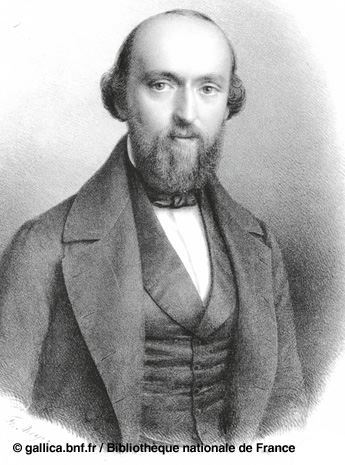 Friedrich Burgmüller, in Paris known under the French form of his name, Frédéric, was born in Regensburg in 1806, the son of the composer, pianist and music teacher Johann August Franz Burgmüller, and elder brother of the composer, conductor and pianist Norbert Burgmüller. Friedrich Burgmüller was taught by his father. After the latter’s death in 1824 he followed him as director of music in Düsseldorf, teaching music in Mühlhausen and as a cellist in Basel. In 1832 he settled in Paris, where he won a considerable reputation as a piano teacher, and internationally as a composer of salon pieces and studies. He did much to promote the work of his brother Norbert, four years his junior, whose career had been cut short by his sudden death at the spa in Aachen in 1836.
Friedrich Burgmüller, in Paris known under the French form of his name, Frédéric, was born in Regensburg in 1806, the son of the composer, pianist and music teacher Johann August Franz Burgmüller, and elder brother of the composer, conductor and pianist Norbert Burgmüller. Friedrich Burgmüller was taught by his father. After the latter’s death in 1824 he followed him as director of music in Düsseldorf, teaching music in Mühlhausen and as a cellist in Basel. In 1832 he settled in Paris, where he won a considerable reputation as a piano teacher, and internationally as a composer of salon pieces and studies. He did much to promote the work of his brother Norbert, four years his junior, whose career had been cut short by his sudden death at the spa in Aachen in 1836. Reviews
“These are scrupulous readings, notable for their clear textures, their exquisite touch, their acute articulation, and their unfailing technique.” – Fanfare

“Simple they may be, but as a collection, they are exceptionally charming.” – BBC Music Magazine

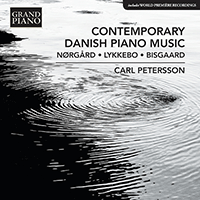
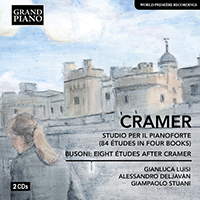
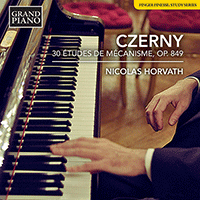
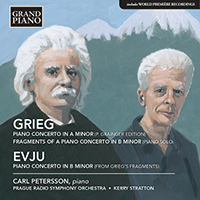
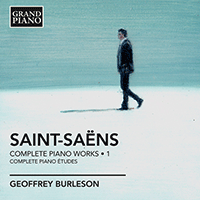
 Grand Piano has gained a reputation for producing high quality recordings of rare keyboard gems. Dedicated to the exploration of undiscovered piano repertoire, the label specialises in complete cycles of piano works by many lesser-known composers, whose output might otherwise have remained unknown and unrecorded.
Grand Piano has gained a reputation for producing high quality recordings of rare keyboard gems. Dedicated to the exploration of undiscovered piano repertoire, the label specialises in complete cycles of piano works by many lesser-known composers, whose output might otherwise have remained unknown and unrecorded.






